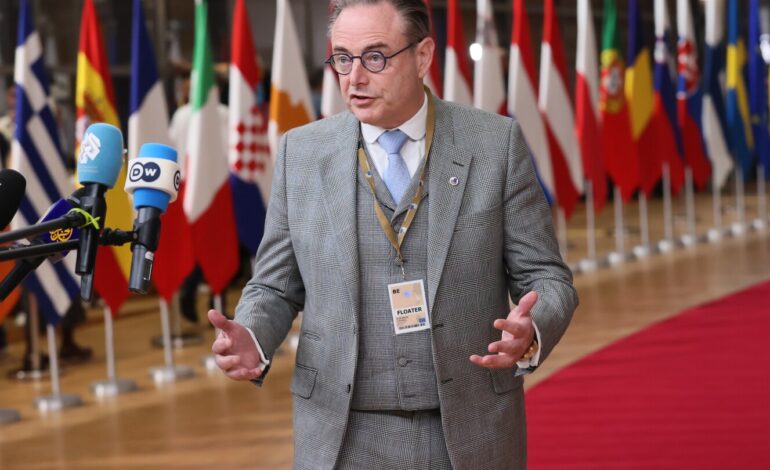Belgium Demands EU Partners Share Risk on Frozen Russian Assets

URGENT UPDATE: Belgium’s Prime Minister Bart De Wever has issued a decisive warning to European Union partners regarding the management of billions of dollars in frozen Russian assets. Speaking just minutes ago in Brussels, De Wever stressed that without shared risk, Belgium would not release these crucial funds to support Ukraine as it faces a staggering budget and military requirement of approximately $153 billion for the years 2026 and 2027.
The Belgian government holds the largest portion of these frozen assets, totaling around $225 billion. De Wever emphasized the necessity for firm guarantees from other EU nations before proceeding, stating, “If we want to give them to Ukraine, we have to do it all together.” He highlighted the potential consequences of unilateral action, warning of possible Russian retaliation specifically targeting Belgium.
De Wever’s comments come as the European Commission is formulating a plan to utilize these frozen assets as collateral for a loan to Ukraine. This initiative, described as a “reparation loan,” seeks to secure around $165 billion in EU funds. The agreement stipulates that Ukraine would repay this loan only after Russia compensates for the extensive destruction caused during the ongoing conflict.
The Kremlin has already reacted strongly against this proposal. Earlier this month, spokesperson Dmitry Peskov condemned the EU’s plans, labeling them “illegal confiscation” of Russian property. In response, Ursula von der Leyen, President of the European Commission, asserted that this measure is not about confiscation but about utilizing cash balances for Ukraine’s benefit. She stated, “Russia is the perpetrator. It has caused the damage, and it has to be held accountable.”
However, De Wever expressed skepticism about the legal framework surrounding this unprecedented move, stating, “I haven’t even seen the legal basis for the decision yet.” He emphasized the gravity of this decision, noting it has not been undertaken since World War II.
As this situation develops, all eyes are on the EU as it grapples with the implications of this financial strategy. The outcome of these discussions could significantly impact Ukraine’s ability to sustain its economy and military efforts amid an ongoing war.
The urgency of this matter cannot be overstated: with potential Russian retaliation looming and the stakes for Ukraine higher than ever, European leaders must act swiftly and cohesively. The upcoming EU meetings will be critical in determining the path forward.
Stay tuned for the latest updates on this evolving story as Belgium navigates these complex diplomatic waters.






